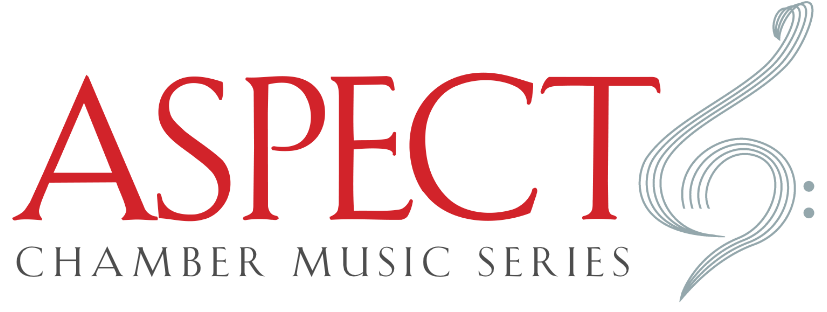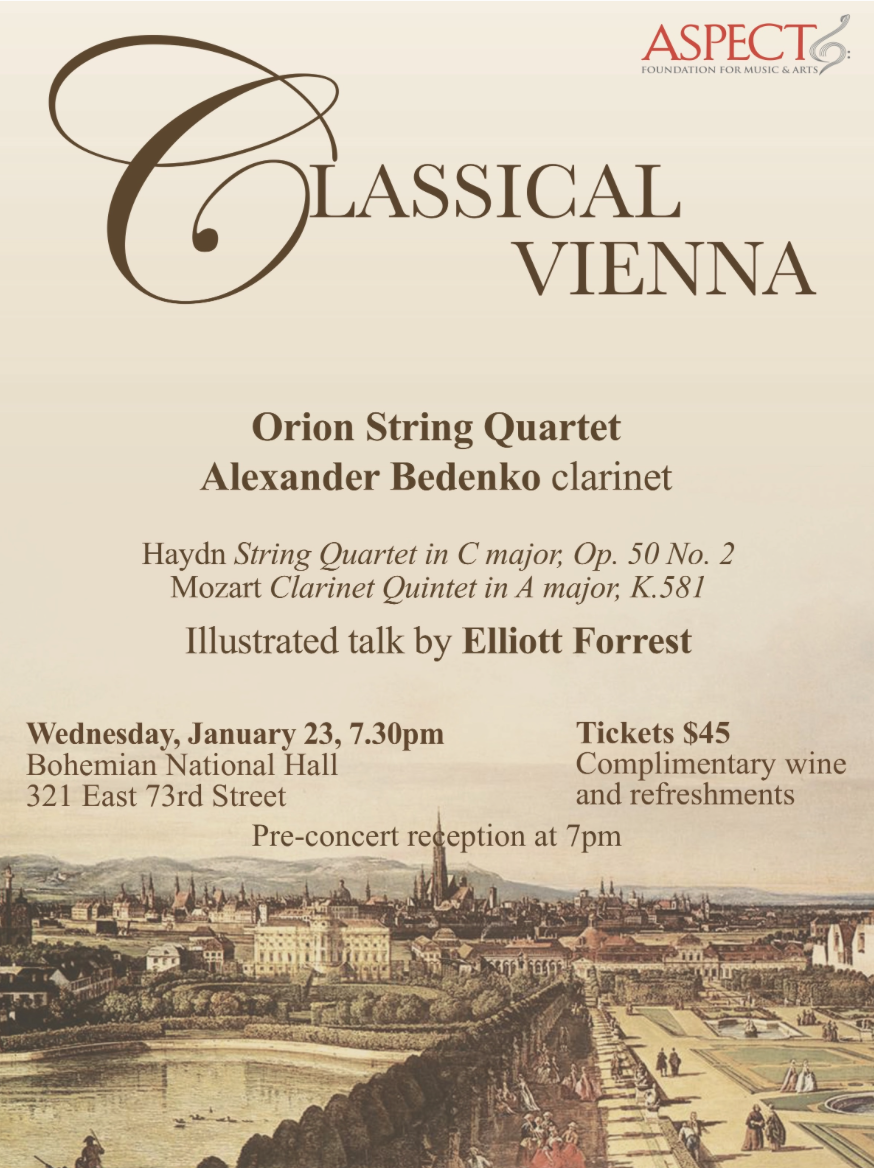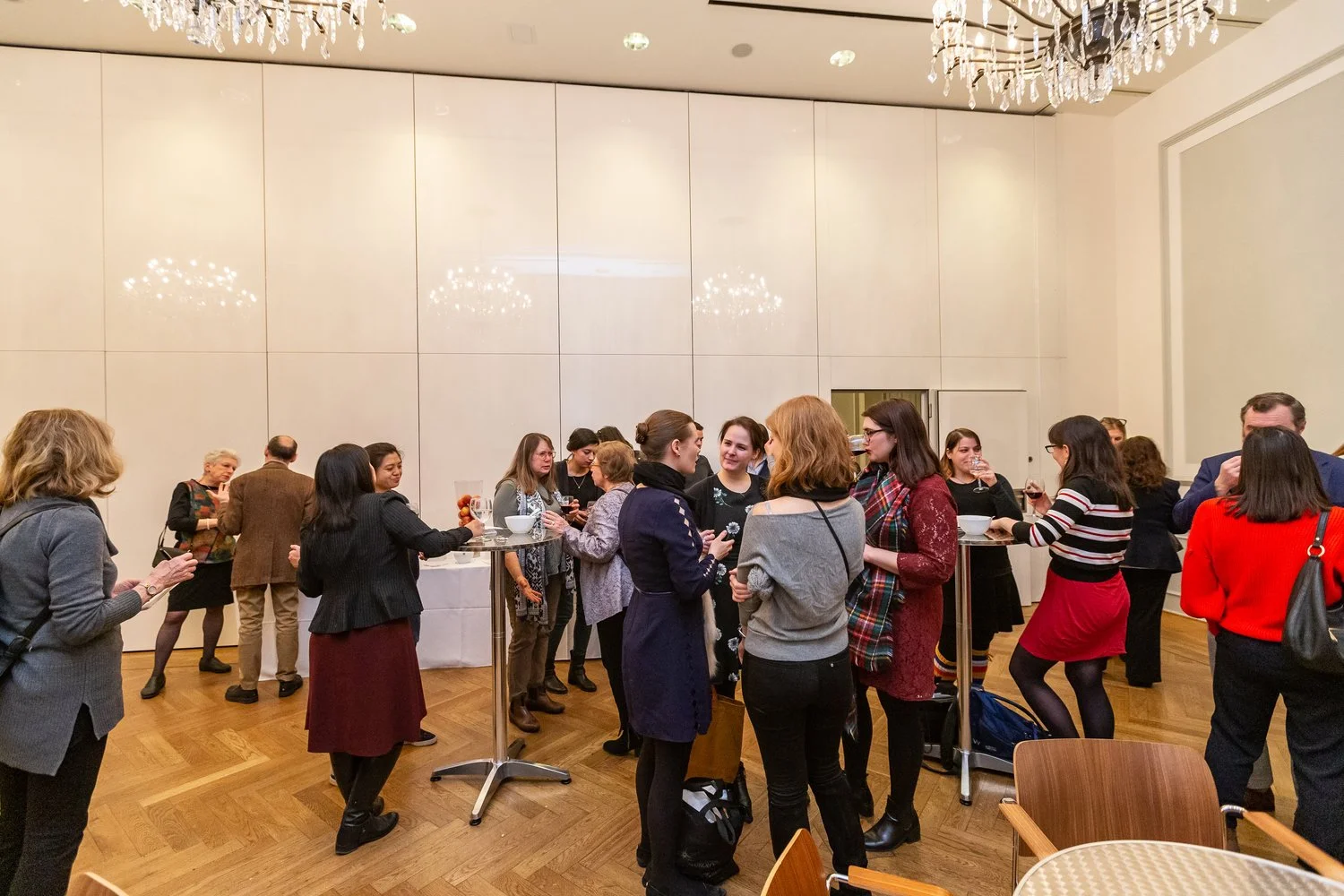CLASSICAL VIENNA
January 23 | Bohemian National Hall
Orion String Quartet
Alexander Bedenko clarinet
Illustrated talk by Elliott Forrest
PROGRAM
Haydn String Quartet in C major, Op. 50 No. 2
Mozart Clarinet Quintet in A major, K. 581
Today, Haydn and Mozart are labeled ‘Classical’, but for a younger contemporary of theirs, the writer, composer, and critic E.T.A. Hoffmann, they were ‘Romantics’. What we now call the Classical Era was an age of ferment and transition. Vienna was a bastion of political and cultural reaction, but also an international city to which people flocked from far and wide, bringing with them contrasting attitudes and beliefs. This was the Age of Enlightenment, too, and intellectuals were challenging the authority of the throne or the pulpit, arguing that truth could only really be found by independent inquiry. The first stirrings of Romanticism, revolutionary thinking, and delight in disputation can all be heard in the chamber and instrumental music of Haydn and Mozart. But the ‘Classical’ label is not simply wrong. This was a period in which new musical forms were being perfected, in which Sturm und Drang was countered by an instinct for balance and elegance of proportion. The paradox of Vienna is also the paradox of its music.
















